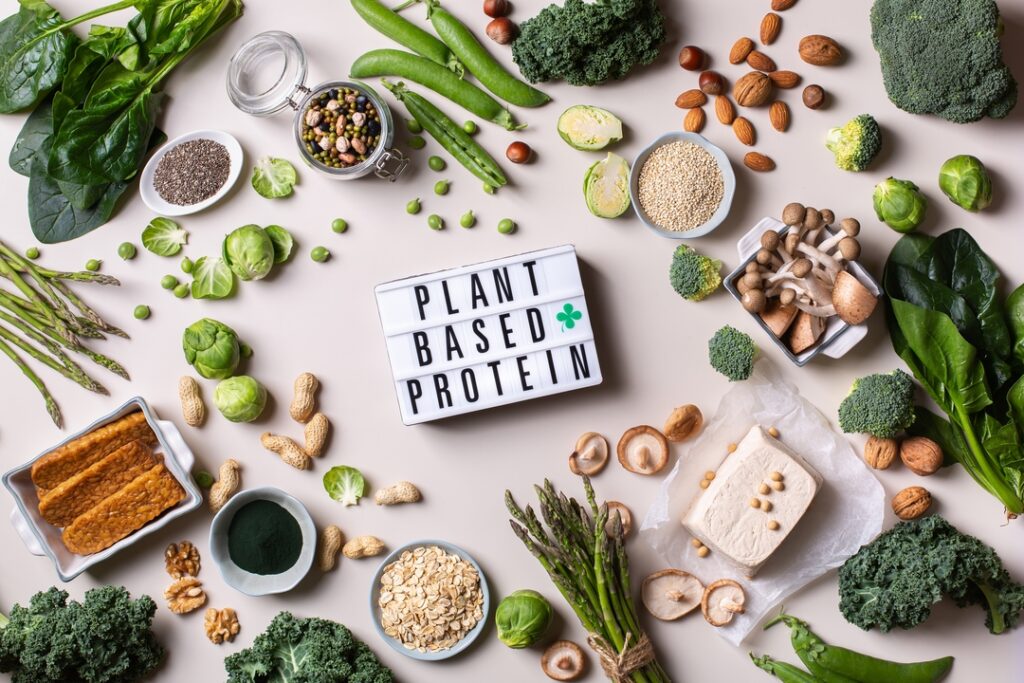As more people embrace plant-based diets for health, environmental, or ethical reasons, the question of protein intake often arises. Contrary to popular belief, it’s entirely possible to meet your protein needs through plant-based sources. In fact, a well-planned plant-based diet can provide all the essential amino acids your body needs to thrive. Let’s explore some of the best plant-based protein sources that can help you maintain a balanced and nutritious diet.
Legumes: The Protein Powerhouses
Legumes are arguably the stars of plant-based protein sources. This category includes beans, lentils, chickpeas, and peas. Not only are they high in protein, but they’re also rich in fiber, which aids in digestion and helps you feel full for longer. For instance, a cup of cooked lentils provides about 18 grams of protein, while also offering a significant amount of iron and folate.
Beans, such as black beans, kidney beans, and navy beans, are versatile ingredients that can be used in a variety of dishes. They’re not only protein-rich but also packed with antioxidants. Chickpeas, the main ingredient in hummus, are another excellent source of protein and can be easily incorporated into salads, stews, or roasted as a crunchy snack.
For those looking to boost their protein intake conveniently, hunger buster gummies can be a tasty supplement to a plant-based diet, although they should not replace whole food sources of protein.
Quinoa: The Complete Protein Grain
Quinoa is often referred to as a “complete protein” because it contains all nine essential amino acids that our bodies cannot produce on their own. This pseudo-grain (it’s actually a seed) packs about 8 grams of protein per cup when cooked. Quinoa is also gluten-free, making it an excellent option for those with celiac disease or gluten sensitivity.
Beyond its protein content, quinoa is rich in fiber, iron, and magnesium. It’s incredibly versatile and can be used as a base for salads, added to soups, or even incorporated into baked goods for a protein boost.
Nuts and Seeds: Small but Mighty
Nuts and seeds are nutritional powerhouses, offering not only protein but also healthy fats, vitamins, and minerals. Almonds, for example, contain about 6 grams of protein per ounce, along with vitamin E and magnesium. Walnuts are rich in omega-3 fatty acids, which are crucial for heart and brain health.
Seeds like chia, hemp, and pumpkin seeds are excellent sources of protein and can be easily sprinkled on salads, added to smoothies, or used in baking. Chia seeds, in particular, are also high in fiber and omega-3s, making them a nutrient-dense addition to any diet.
For more ideas on incorporating these nutritious foods into your diet, check out these healthy breakfast ideas that often feature nuts and seeds.
Soy Products: Versatile Protein Sources
Soy products have long been a staple in plant-based diets due to their high protein content and versatility. Tofu, made from condensed soy milk, is a blank canvas that can absorb flavors well and be used in a variety of cooking methods. A half-cup of firm tofu contains about 10 grams of protein.
Tempeh, made from fermented soybeans, offers even more protein – about 15 grams per half-cup – and has a nutty flavor and firm texture. Edamame, or immature soybeans, can be enjoyed as a snack or added to salads and stir-fries, providing about 8 grams of protein per half-cup.
It’s worth noting that while soy is a complete protein source, some people may have allergies or sensitivities to soy products. As with any dietary change, it’s important to listen to your body and consult with a healthcare professional if you have concerns.
Nutritional Yeast: A Cheesy Protein Boost
Nutritional yeast, often affectionately called “nooch” by its fans, is a deactivated yeast that has a cheesy, nutty flavour. It’s a favourite among vegans not only for its taste but also for its impressive nutritional profile. Two tablespoons of nutritional yeast contain about 8 grams of protein, along with B-vitamins (including B12 in fortified varieties) and minerals.
Nutritional yeast can be sprinkled on popcorn, used to make vegan cheese sauces, or added to soups and stews for a umami flavour boost. Its versatility makes it an excellent addition to a plant-based pantry.
Seitan: The Wheat Meat
Seitan, also known as wheat gluten, is a high-protein food made from wheat protein. It has a meaty texture that makes it a popular choice for plant-based meat alternatives. A 100-gram serving of seitan contains about 25 grams of protein, making it one of the most protein-dense plant foods available.
While seitan is versatile and can be flavoured in many ways, it’s important to note that it’s not suitable for those with celiac disease or gluten sensitivity. For those who can consume gluten, however, seitan can be an excellent protein source in a plant-based diet.
Green Vegetables: More Than Just Fiber
While not as protein-dense as some other sources, green vegetables do contribute to overall protein intake and are packed with other essential nutrients. Broccoli, spinach, and Brussels sprouts all contain protein along with fiber, vitamins, and minerals. For example, a cup of cooked spinach contains about 5 grams of protein.
These vegetables are also rich in antioxidants and have been linked to numerous health benefits. Incorporating a variety of green vegetables into your diet not only boosts your protein intake but also contributes to overall health and well-being.
For more information on the benefits of incorporating these nutrient-rich foods into your diet, explore this article on superfoods you need to get on ASAP.
Conclusion: Embracing Plant-Based Protein
As we’ve explored, there are numerous plant-based sources of protein that can contribute to a balanced and nutritious diet. By incorporating a variety of these foods into your meals, you can easily meet your protein needs while enjoying the many other health benefits these plant foods offer.
Remember, the key to a healthy plant-based diet is variety. Mix and match different protein sources to ensure you’re getting a full range of amino acids and other essential nutrients. And as with any significant dietary change, it’s always a good idea to consult with a registered dietitian or healthcare provider to ensure you’re meeting all your nutritional needs.
Whether you’re fully plant-based or simply looking to incorporate more plant proteins into your diet, these sources offer delicious and nutritious options. Experiment with different recipes and find the combinations that work best for you. With a little creativity and planning, you can enjoy a protein-rich, plant-based diet that supports your health and aligns with your dietary preferences.





